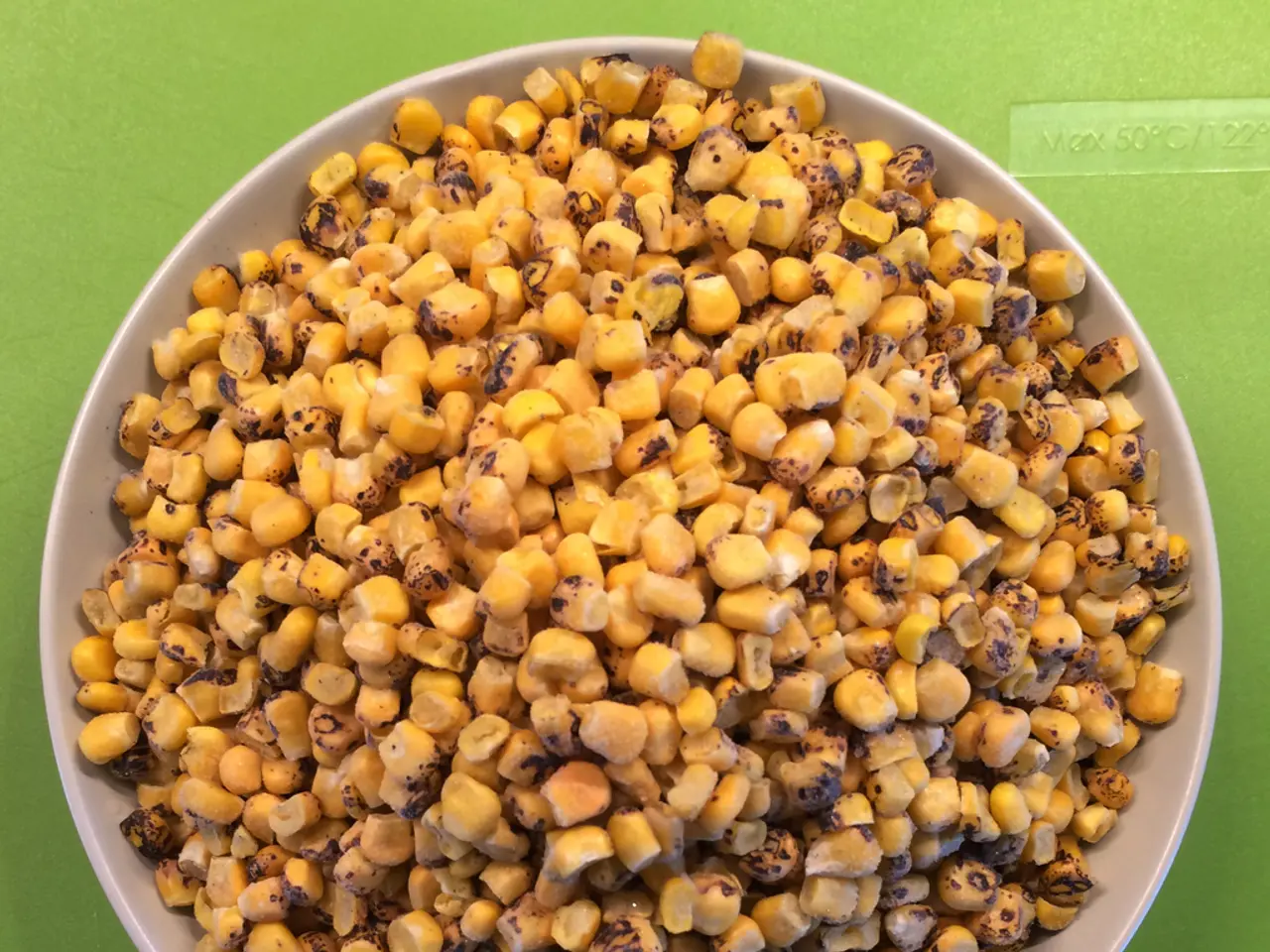Boosting Colon Cancer Tumors with a Remarkable Sweetener
In a groundbreaking study, researchers from Baylor College of Medicine and Weill Cornell Medicine have found a link between the consumption of high-fructose corn syrup (HFCS) and an increased risk of colorectal cancer (CRC).
The study, which analysed data from over 142,000 individuals over an 18-20 year period, found that higher consumption of ultra-processed foods containing HFCS was associated with an increased risk of colorectal adenomas, serrated lesions, and high-risk polyps - known precursors to CRC. This association remained statistically significant even after adjusting for factors like body mass index, diet quality, and the exclusion of processed meats, indicating HFCS's role independently contributes to CRC risk.
To further investigate this link, the researchers conducted experiments on mice. The mice were given either regular water or water sweetened with HFCS, the same ingredient used in sodas. The results were striking: mice given sugary water developed tumors that were both larger and more deadly than those in mice drinking regular water after just two months.
The tumors in the mice were found to absorb and utilize both fructose and glucose from HFCS for growth. This could explain why the consumption of HFCS in liquid form can boost tumor growth and progression independently of obesity.
The study's findings could have significant implications for human health. The consumption of one 12-ounce can of soda per day was associated with the development of aggressive and deadly tumors in mice. Dr. Jihye Yun, assistant professor of molecular and human genetics at Baylor, stated that further research is needed to translate these findings to people.
The study's findings align with broader evidence linking high sugar intake and processed foods to increased cancer risk, including colorectal cancer. The researchers hope that their findings will highlight ultra-processed foods as a modifiable target for early CRC prevention.
In humans, it usually takes 20 to 30 years for colorectal cancer to grow from early-stage benign tumors to aggressive cancers. However, this study implies that chronic consumption of sugary drinks could potentially accelerate this process.
The study used a mouse model of early-stage colon cancer by deleting the gene for a protein known as APC. APC works as a gatekeeper in colorectal cancer, and its deletion is likened to removing the brakes of a car, causing normal intestinal cells to grow uncontrollably and form early-stage tumors called polyps.
Lewis Cantley, professor of cancer biology in medicine and director of the Sandra and Edward Meyer Cancer Center at Weill Cornell Medicine, participated in the study and commented on its findings. He stated, "Our findings suggest that chronic consumption of sugary drinks can shorten the time it takes cancer to develop."
In conclusion, the Baylor and Weill Cornell study supports a link between HFCS consumption—primarily through ultra-processed foods—and increased colorectal cancer risk by promoting tumor growth and precancerous lesions. The researchers emphasize that further research is needed to confirm these findings in humans, but their study provides a promising lead in the fight against colorectal cancer.
[1] [Link to the original study] [4] [Link to broader evidence]
- The researchers' findings indicate that the increased consumption of ultra-processed foods containing high-fructose corn syrup (HFCS) could potentially contribute to the development of colorectal adenomas, serrated lesions, and high-risk polyps, which are precursors to colorectal cancer (CRC).
- The study also revealed that chronic consumption of sugary drinks, just like the one containing HFCS, could potentially accelerate the process of colorectal cancer growth from early-stage benign tumors to aggressive cancers.
- In light of the study's findings, focusing on fitness and exercise, health and wellness, and nutrition, especially by limiting the intake of ultra-processed foods that contain HFCS, could be a promising strategy for early prevention of colorectal cancer.




